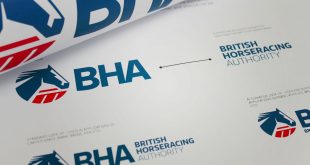Sky Bet CEO Richard Flint revealed that the bookmaker restricts 3% of its customer base in the bets that can be placed, but the bookmaker does not close the accounts of winning punters.
Speaking at the All Party Parliamentary Betting & Gaming Group Seminar in the House of Lords yesterday, Flint admitted that it restricted 2% of its customers to bets with a liability of £1,000, while a further 1% were limited to bets winning £100. However, Flint claimed that Sky Bet only close accounts for social responsibility or potential fraud reasons.

The debate was commisioned to ask the question whether ‘bookmakers are unfairly closing accounts?’ with Horseracing Bettors Forum Chairman Simon Rowlands taking up the case of the punter. But rather than the pantomime back and forth that some had been anticipating, what followed was a measured discussion about complex operational issues for betting stakeholders.
While HBF accepted that bookmakers should have the ability to restrict accounts it believes that too many bookmakers are restricting too quickly and more casual punters are being caught in the crossfire. Rowlands suggested that it is causing a vicious circle to develop where bookmakers are becoming ever suspicious of punters and adding more restrictions and punters are becoming ever more inventive in finding a way around them.
Rowlands highlighted the fact that the Australian betting industry has had a minimum guarantee for bets with a liability of Aus$2,000 which has gained plaudits amongst punters. The HBF has suggested that a £500 limit might be a conservative step in that direction. He even suggested that bookmakers could have a special ‘no frills’ account where customers would be offered no bonuses or promotions in exchange for a minimum bet.
Flint accepted that the industry needs to do much more to work with customers over issues but underlined the fact that Sky Bet is a business and not a public service and the fact that it has other obligations such as a large workforce, pays £150m in taxes and supports sport through levy payments and sponsorship. He also pointed out that Sky Bet was positioned at the leisure punter, the firm has 1m active customers, and that the company had to be mindful of any negative effects on this wider audience of any changes.
He also tackled the assumption that bookmakers don’t like winners, revealing that 20% of its customers win – a figure that rises to 25% for horseracing. He also suggested that the company loses £7m a year from the 3% of customer restricted accounts.
Given that Sky Bet already has a minimum liability of £100, Flint said that the company would be prepared to look at raising that level to £500 and weigh up the pros and cons. He concluded: “If consequence is that worse odds are offered to wider audience, I don’t think that is good for racing.”









